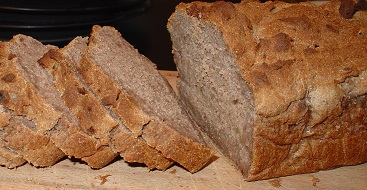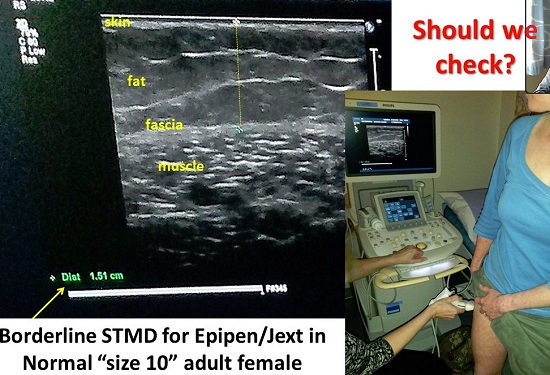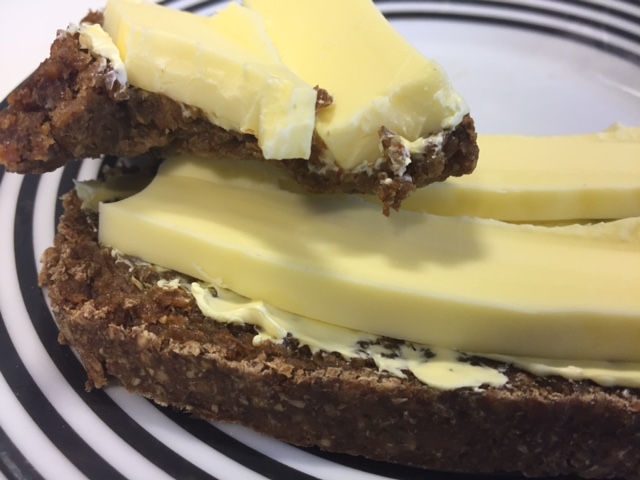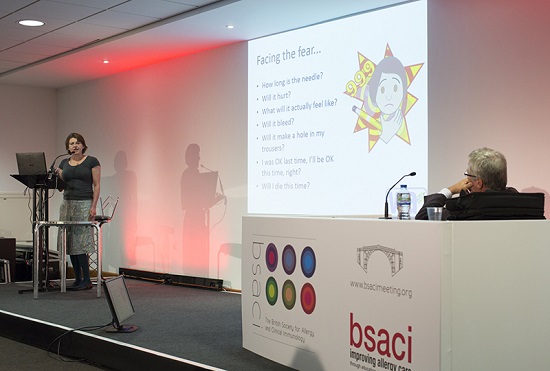The market for free from food is currently booming worldwide. Every week I hear of new companies making gluten free cakes, dairy free chocolate etc.; this is great news for all those with allergies, coeliac disease, food intolerances or other conditions which are alleviated by avoiding certain foods.
“Allergy is widespread and affects approximately one in four of the population in the UK at some time in their lives. Each year the numbers are increasing by 5% with as many as half of all those affected being children.” Allergy UK
Perhaps it’s no surprise then that gluten free baking is big business; engineers researching how ultra-sound could be used to improve industrial baking have received £500,000 in government funding to look into this area. One main area of research is thought to be around improving the texture of gluten free baked products as well as normal baked goods that do contain gluten.
The project will be led by food ingredient manufacturer, Macphie of Glenbervie, with Heriot-Watt University carrying out the research. Also involved are Piezo Composite Transducers, Mono Bakery Equipment and Fosters Bakery.
Gluten free bread has come on leaps and bounds in the last ten years. There used to be little choice, no fresh bread on offer and poor taste and quality. Walk around any supermarket now and you’ll find a growing number of competitive products, fresh loaves which actually taste very good, including Genius gluten free, Warburtons and Fria, to name just a few. They are generally smaller loaves though and can be susceptible to crumbling if not handled carefully. So could this new technology allow gluten free bread to be made into larger loaves with less dense consistency and avoid the crumbling that can occur?
The university tasked with this research is Heriot-Watt and researchers there think that ultrasound could have the following benefits on industrial baking processes:
- Reduce processing time
- Reduce energy usage
- Reduce wastage
- Improved the texture of products in the growing gluten free market
Apparently “applying ultrasonic waves to baking dough helped to regulate its energy and mass balance to prevent pockets of air forming and to develop structure of dough in order to ensure it didn’t collapse.” The Engineer magazine, 14 November 2011.
Research leader Dr Carmen Torres-Sanchez of Heriot-Watt University told The Engineer, “The gluten-free market is growing at around 20% a year, but without gluten, products can collapse and look bad. We can use this technology to tailor the texture of products.” It will not only improve the consistency and structure of gluten free baked goods but also potentially speed up the whole process, thus making energy and time savings. If the market continues to grow and demand for gluten free goods rises this technology would see those taking it up in a very competitive position.
Nothing should surprise us these days but I was intrigued to understand more about why scientists were even attemtping to try this out on baked goods. Apparently, this new technique is based on methods used to control porosity of industrial materials such as foaming polymer! I wouldn’t really compare bread with polymer, but then I’m no scientist.
Certainly this technology sounds like something that could improve gluten free baking, but which manufacturers are going to be able to harness ulstrasound at their bakeries? Many are small companies and even independent traders, but actually, most of them are producing amazing stuff that doesn’t need much tinkering in my opinion. However, there is always room for improvement and I’m all for advancements that improve products for the customer. When you start to make things on a big scale the personal touch is lost, so perhaps this new technology helps to make mass produced gluten-free baked goods of a better quality. I’ll bet the big supermarkets will be looking at taking advantage of ultrasound if it proves to be a successful trial.
The researchers hope that they will be able to develop ovens and bakery equipment with the ultrasound technology embedded so that it can be applied to the food while it’s baked.
I wonder though what research is being done into the possible side effects of ultrasound. How can ‘sound’ help to improve the quality of baked goods? Will it effect the make-up of the flour and other ingredients? Will it leave any trace in the food that could pass on to the customer who eats it? These might be really daft questions that could be swiftly allayed by an expert, but I’m always dubious about things like this. What would the long term effects be? If they were purely better gluten free baked goods then we’re all laughing.













I do wonder how far we are prepared to go to eat foods that are simply not right for us. Eat proper food not Frankenstein stuff, I reckon!
I agree with you, but what are we eating now? We don’t really know what’s been done to a lot of the food on supermarket shelves even now. Very worrying, but you just have to try to buy as organic and pure food as possible. Not always easy to know what’s what though! Frankenfood is on the rise.
I don’t think we should be so skeptical. Ultrasound is nothing to be afraid of IMHO.